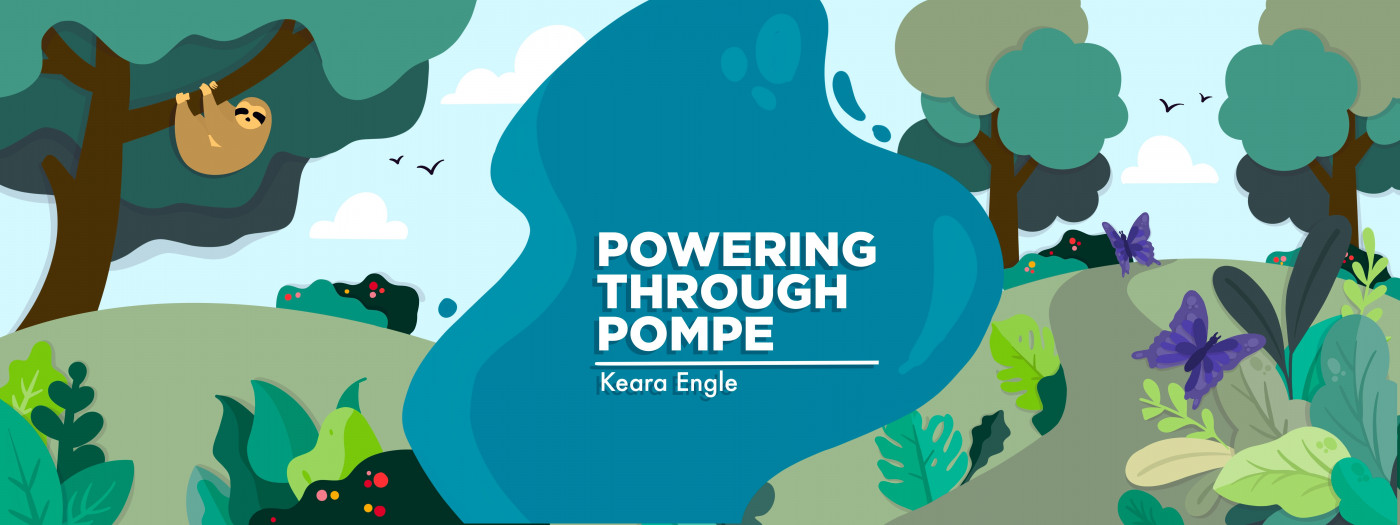The Benefits of Attending an In-person Pompe Presentation
A columnist hears about disease symptoms and meets some of her readers
Written by |

I attended an in-person educational presentation on Pompe disease this month in Hershey, Pennsylvania, that was hosted by Sanofi, the creator of two drugs that are treatment options for Pompe. I got to hear great information about “Taking Charge of Your Pompe Disease.”
Most of the presentation related to late-onset Pompe disease. I still found it useful information, even though my 4-year-old son, Cayden, has infantile-onset Pompe disease. I always find it fascinating to hear from the late-onset population, as there are a lot of differences between the two types.
Glycogen buildup in Pompe can affect the diaphragm, the presentation pointed out. I was particularly interested in this topic because Cayden deals with it. He helps his weak diaphragm as he sleeps by using a BiPAP machine every night. We’re scheduled to do another sleep study to see whether he needs the BiPAP still, and I’m anxious to see what the study results will show.
Another part of the presentation shared how Pompe disease is passed down to a child from their parents. This led to a discussion about the importance of family testing and why early diagnosis is so important. Pompe can only be passed onto a child if both of the parents are carriers, which is why it’s such a rare disease. But despite that, there are serious consequences when it goes undiagnosed for a significant period of time.
After all the information from the presentation was shared, we then had the opportunity to ask questions. Some were questions I would’ve never thought to ask. One parent asked about the significance of using ultrasound to detect muscle damage and what the ultrasound would show, which I found fascinating.
Once all the questions were answered, a few patients chose to share their stories and how they found out that they have Pompe disease. I’ve always been curious to see the different ways each patient was able to reach a diagnosis. I feel bad that some people struggle for the majority of their life and are misdiagnosed until one doctor or healthcare provider finally gives them the answer that they’ve been searching for years to find. Some folks don’t find their diagnosis until they’re in their 30s, 40s, or even 50s. Thankfully, newborn screening is changing this.
At the event’s end, I got the chance to talk to a few individuals one on one. They shared with me that they’ve found my columns here on Pompe Disease News and expressed how helpful it was to read them. This made me feel great because I know that I’m making an impact and spreading awareness, which is my goal.
I’m very thankful that I had the opportunity to attend this presentation. Meeting other Pompe patients and their families in person was amazing, to say the least. It helps me realize that none of us is going through this journey alone. I’ll always remember this day, and I look forward to attending more Pompe events.
Note: Pompe Disease News is strictly a news and information website about the disease. It does not provide medical advice, diagnosis, or treatment. This content is not intended to be a substitute for professional medical advice, diagnosis, or treatment. Always seek the advice of your physician or other qualified health provider with any questions you may have regarding a medical condition. Never disregard professional medical advice or delay in seeking it because of something you have read on this website. The opinions expressed in this column are not those of Pompe Disease News or its parent company, Bionews, and are intended to spark discussion about issues pertaining to Pompe disease.







Leave a comment
Fill in the required fields to post. Your email address will not be published.